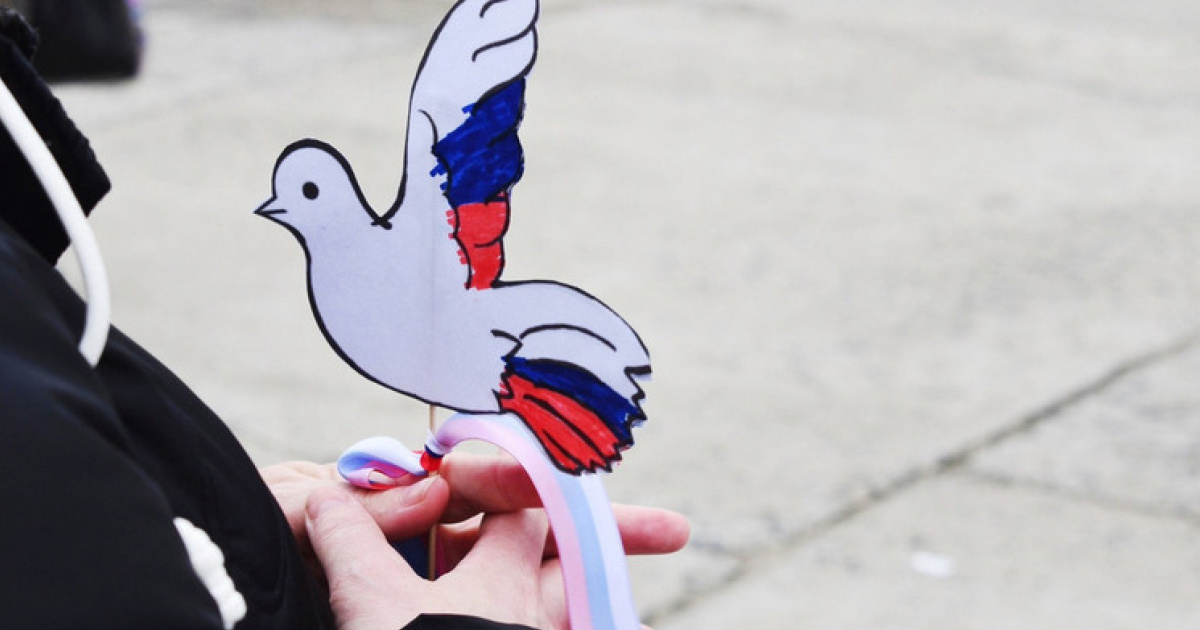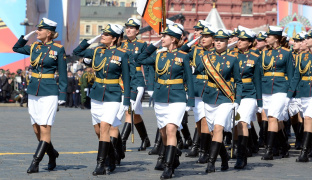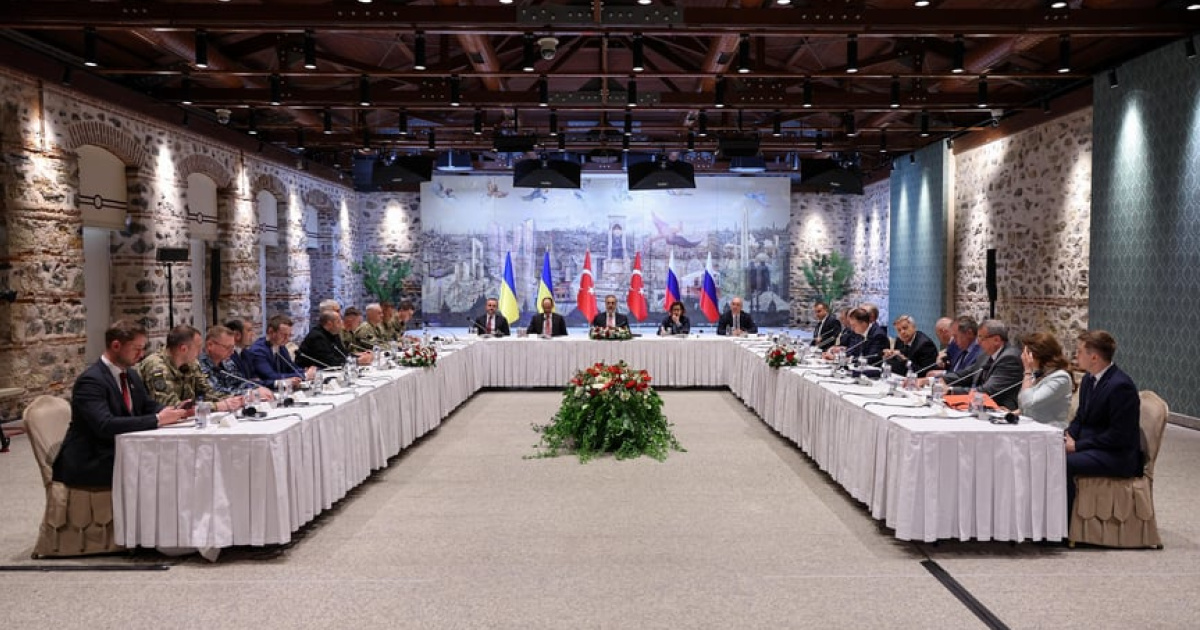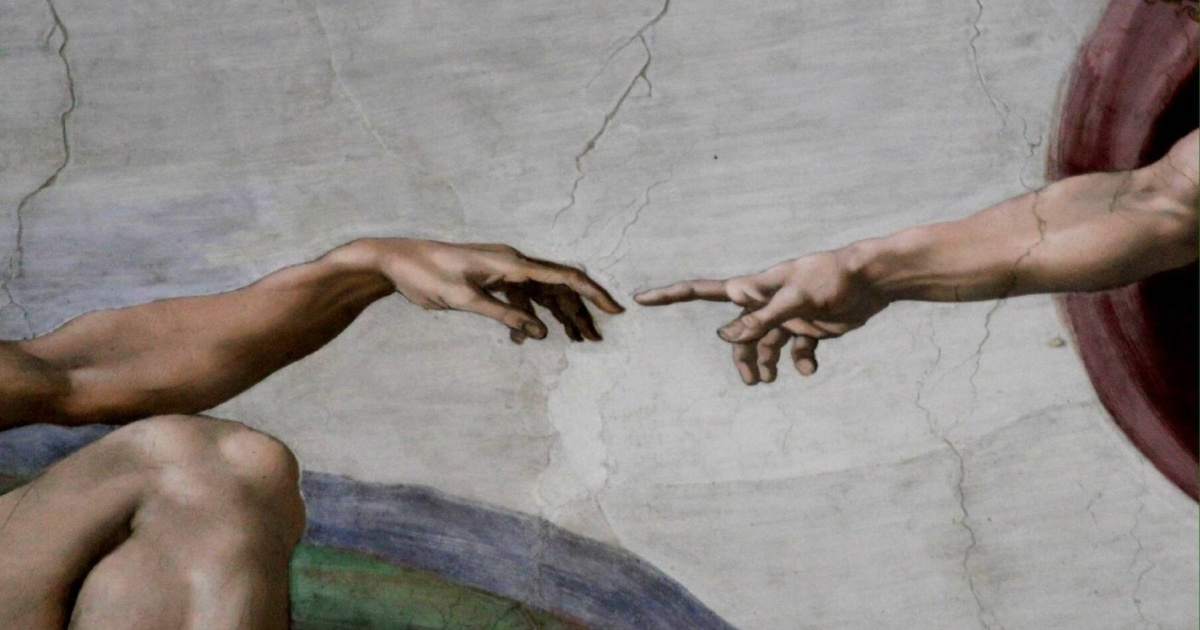- Hello. I would like to open an ordinary bank account in hryvnia,
- Vladislav, a displaced person from the Crimea, addressed the employee of Privatbank and gave his passport with the Crimean registration.
- Of course, no problem, - he answered and began to deal with the card.
- I see you have Crimean registration… We can open a card, but you will not be able to conduct any transactions with it: to put or take out money as well as to pay. You need a certificate of a displaced person in order to do this, - the bank employee said after some time.
- But I am not a displaced person. I have been living in Kyiv for many years, even before the occupation. I have a steady and well-paid job and real estate in Kyiv.
- We need only a certificate of internally displaced person. We have such rules. This is a decree of the National Bank of Ukraine, - he snapped.
The dialogue did not end. There were attempts to speak with the chief manager of the branch and other employees of the bank, but all this was unsuccessful.
Vladislav moved from Sevastopol to Kyiv about four years ago. He decided to live in the controlled territory of Ukraine since the beginning of the occupation of the Crimean peninsula. He found a good job and bought an apartment during this time, but decided to keep the Crimean registration on principle.
"I am Crimean, I am Ukrainian. And the phrase "Crimea is Ukraine" is not empty words for me. I want to say that I am from the Ukrainian Crimea being abroad, and that here in Kyiv it sounded so when checking the documents", - he says.
The lawyer of Vostok SOS charity fund Olena Lunieva confirms that displaced persons from the Crimea and Donbass can face problems in Ukrainian banks at any time.
"The displaced persons, regardless of whether they are from the Donbass or Crimea, can be discriminated at any moment and in any bank. The bank may demand confirmation of the fact of residence on the controlled territory of Ukraine. We know it from practical experience. At the same time, the law does not establish and does not intend any list of documents by which this can be confirmed. This is discrimination, because these requirements are applied only to a certain category of people. They are not applied to the residents of Zhytomyr or Lviv, they are applied specifically to the displaced persons, because banks (unofficially, of course) refer them to the category of higher risk", - she said.
The lawyer said that, being a displaced person, she was required two documents in Ukrsimbank, with which she had to confirm the fact of her residence in the controlled territory. This is a certificate from Ukrposhta that she receives correspondence there, a copy of the gym membership, a certificate from the nursery-school teacher that Olena accompanies the child.
"These requirements generally diminish the human dignity, because the bank would not require such certificates from any other resident. And it is extremely difficult to effectively resist this. Banks refer to the law on prevention and counteraction to legalization of incomes obtained by criminal means or terrorism financing, where bank has the right to check suspicious transactions and clients. This is discrimination based on registration", - Olena Lunieva notes.
However, it cannot be said in this particular case that the same norms apply to all the displaced persons. The National Bank has divided them into residents (residents of the uncontrolled Donbass) and non-residents (residents of the occupied Crimea). OstroV puzzled out the special aspects of banking servicing for these categories of displaced persons.
Non-residents from Crimea
After the unsuccessful attempt to open an account in bank, Vladislav went to make a certificate of the internally displaced person to the Social Services Office of Obolonsky district of Kyiv the next morning.
Fortunately, the queue there was small, so the whole process took no more than an hour. Not the friendliest employee of the Social Services Office asked first why he had not made a certificate earlier, and then - when he moved to the controlled territory of Ukraine. Vladislav answered honestly that it was before the occupation's beginning. The girl raised her eyebrows and said that I cannot get a certificate since I am not a displaced person.
"Internally displaced person is the one who had left after the beginning of ATO or annexation", - she replied strictly.
An awkward pause… and Vladislav says that he made a mistake and moved after the occupation's beginning, although he realized that he just had to lie. This quickly unblocked the process, the employee registered it, asked to fill out the application and gave a long-awaited certificate after 20 minutes.
But is it legal? We open the Law of Ukraine "On ensuring of rights and freedoms of internally displaced persons", which was adopted in October 2014, to verify it.
And it is written in the first article that the internally displaced person is a citizen of Ukraine, a foreigner or a person without nationality who is legally residing in the territory of Ukraine and has the right to permanent residence in Ukraine, who was forced to leave or abandon his place of residence as a result or for the avoidance of negative implications of the armed conflict, temporary occupation, widespread expressions of violence, violations of human rights and emergency situations of natural or man-caused nature.
Moreover, the law determines that the address of the left place of residence of an internally displaced person is the address of the place of residence at the time of occurrence of the circumstances specified in the first part of this article, that is an armed conflict or occupation.
And the basis for registering an internally displaced person is presence in the territory where the circumstances specified in the first article had occurred, that is a military conflict or occupation.
"Kyiv was my place of residence at the time of the occupation. It turns out, according to the law, that the Kyiv address where I continue to live is the place of residence left by me. How can it be? This is a total crap. In addition, according to this Law, I cannot be a displaced person in principle", - Vladislav notes the absurdity of the situation.
Inconsistencies of the Ukrainian legislation simply force the displaced persons, with the Crimean registration in particular, to violate the laws in such a way in order to obtain a certificate of internally displaced person. Because otherwise, that is without a certificate, they will not be able to fully live in Ukraine.
Vladislav returned to Privatbank after receiving a certificate of displaced person, where he was opened an account without any issues.
As a rule, Privatbank offers to obtain a credit limit to the card even for new clients. In this case, the employee of the bank sent an appropriate request, but it was immediately refused.
"You are denied a minimum credit limit. We do not know the reason. It is the decision of the credit office", - was said at the bank.
As it turned out later, it is almost impossible to obtain even the most minimal credit limit in Privatbank with the Crimean registration. Even a certificate from the place of work and documents for movable and immovable assets cannot influence this. Of course, the banks do not say officially that this is because of the status of displaced person.
"The credit provision of internally displaced persons is carried out on the usual terms", - Privatbank states.
But this is not so in the real world. This information was confirmed to OstroV by the ex-employee of Privatbank, who currently works in another large Ukrainian bank.
"Displaced persons are a risk group number one. This was the loudest rule inside the bank in 2014-2015, so few people decided to give them credits. And those who dared then reported on each of them to the authorities. We were told that we need to say that it was because of the credit office that does not report to anyone. Our task was to ensure that all those who had stayed in the occupied territory or had left it returned all previously taken credits. We blocked the cards of Crimeans at once, and the credit limits were not restored to anyone. Everything was a bit softer with the Donetsk people: we looked at the credit history, the existence of work, real estate, car", - Natalia told.
According to her, about the same system functions in the bank where she currently works, and it is almost impossible to get a credit with the Crimean registration. You need a "very massive credit history, many documents and patience".
Where did the banks take such a dislike toward Ukrainians with the Crimean registration? The fact is that the Law No 1636-VII "On creation of the free economic zone "Crimea" and on the special aspects of the implementation of economic activity on the temporarily occupied territory of Ukraine" came into force on September 27, 2014. According to many experts, this violates the rights of Crimeans, and at the same time creates opportunities for large Ukrainian business for calm and "legal" work on the occupied territory.
The next step was a decree of the National Bank of Ukraine № 699 "On the application of certain norms of currency legislation during the regime of temporary occupation on the territory of the free economic zone "Crimea", which also disables Crimeans. In particular, persons registered in Crimea (with the Crimean registration) are considered non-residents, and foreign investors as for investment operations.
"I remember I wanted to send some money to my relatives in Russia, living in Kyiv in 2014, I came to the cash department, but they just sent me away. They said that I am non-resident and that is that. Even a certificate of displaced person could not help me at that time. I needed to document the origin of this money in order to send money or perform any other banking operation. I had to ask friends with Donetsk residence registration to send money instead of me", - displaced resident Vladislav recalls.
The decree "on non-residents" has caused a lot of noise, public figures and human rights advocates unanimously declared that this is discrimination and violation of the rights of Crimeans. And after a few months, changes were made to this decree, where the presence of a displaced person certificate made a “non-resident” a “resident“. It was a small, but a victory.
Even now, Crimeans cannot actually be serviced in Ukrainian banks without a displaced person certificate, or they have the right to do the operations as non-residents, which is extremely problematic. A displaced person certificate allows you to open an account, transfer money, perform currency exchange operations etc., but it will not be possible to use bank's services fully. There will always be a possibility that they will refuse to loan out, allow to pay in installments or will require additional documents, such as certificate from Ukrposhta or a gym.
This problem makes many Crimeans, who moved to the controlled territory of Ukraine, to work illegally. For example, Nikolai, who recently moved to Kyiv from Sevastopol, could not find an official job.
"I moved from the Crimea a few months ago, and the first problem I faced was the lack of an opportunity to open a regular bank card. They asked me for a displaced person certificate, which I did not want and still do not want to receive. But the problem is, because of this I cannot officially find a job, because you need to open a salary bank card, so I work unofficially and do not pay taxes to the state, but not because I do not want to, but because I cannot do that. Apparently, Ukraine does not need my taxes. They will not give me minimum loans or installments even with a displaced person certificate and a certificate from a job with a good salary. It is very offensive, as I deliberately moved to Ukraine from the occupied peninsula, but I have a feeling that I am a stranger here", - he confessed.
According to OstroV, nowadays significant changes are being made to the law on “Crimea” economic zone, as a result of which, perhaps, Crimeans will no longer be considered non-residents in their home country.
Residents from Donbass
The situation with displaced residents from Donbass is slightly different. Officially, there is not a single document or resolution that provides that internally displaced persons from Donetsk and Luhansk oblasts have any specifics in banking services. Ukrainian banks unanimously confirm it.
"In Privatbank, there is no distinction between internally displaced persons or persons residing in, for example, Dnipro or Kyiv. Lending conditions are standard for all our clients", - Privatbank told.
OstroV also appealed to several other large Ukrainian banks, where we received similar answers.
But everything looks much more complicated in practical terms.
Maria moved from Luhansk to Kharkiv about a year ago. At first, she solved the usual current problems: housing, work, improvement in a new place. And everything seemed to be working for her, she did not need any help from the state, she did not feel discriminated... until she went to the bank.
"I have been a client of Privatbank for all my life and I did not have any problems: I had a good credit limit, I regularly took out loans and installments to buy something, always repaid it in time. After moving, I found a good job in Kharkiv, but you constantly need new things and home appliances in the new place. It was not possible to make such money quickly, therefore, I just went to the bank, where I was refused even in the minimum loan. Of course, they did not give me the official reason for this refusal, they noted that this is the policy of the credit department, and they have nothing to do with this. But my sources at the bank said that this applies to all those who moved here after the occupation. This is the actual policy of the bank", - she said.
Of course, residents from Donbass do not need a certificate of an internally displaced person to open a bank account or to transfer money. To do this, passport is enough. But the bank may require a certificate of IDPs and other set of documents to give loans and installments.
Former employee of Privatbank Natalia says that for residents of Donbass (not only its occupied territory) it is now difficult to get a good loan or increase the credit limit. For this, at a minimum, you need an official and well-paid job. But in this case, each bank at its own discretion will form the necessary list of documents to make a decision.
"For example, recently, at my new place of employment a 40 year old man wanted to take out a loan for repairing the house on bail of the house itself. He had a Donetsk residence permit, a displaced person certificate and a certificate with the official salary of USD 165. This is a potentially solvent customer, but our bank refused to issue him a loan of USD 1850. Of course, we do not name the official reason, but everybody understands it – it is all about the Donetsk registration", - she notes.
Olena Lunieva, lawyer of the NGO Vostok SOS, says that the hotline receives many calls from displaced persons with the problem that banks refuse to issue loans or require additional documents.
"Displaced persons from Donbass often ask us to help with this problem. Banks refuse to issue a loan, even with a good credit history and a permanent job or they significantly limit the loan amount. Unfortunately, any bank feels comfortable enough, they say this is the internal bank policy or refer to laws which are not directly related to the displaced persons", - she said.
Therefore, despite the "resident" status of Ukrainians with Donetsk registration, displaced persons from Donbass also have a hard time in Ukrainian banks, and they cannot fully use all the provided services.
Monopoly of Oschadbank
On March 14, 2016, the Cabinet of Ministers of Ukraine adopted Resolution № 167, according to which, from July 1, internally displaced persons can receive all social payments, including pensions, only through Oschadbank.
"These people cannot choose a bank where they want to receive social benefits and pensions. This is a violation of rights and discrimination", - lawyer Olena Lunieva said.
OstroV has already wrote about the peculiarities of servicing the internally displaced persons in Oschadbank.
Nothing has changed for the better. People who want to receive social benefits, including pensions, still line up in huge queues in Oschadbank and its ATMs. If for large cities this problem is not so great, in small towns with only one branch of the bank and one ATM, getting a pension becomes a real test.
"Until now, Oschadbank has a monopoly. The bank does not cope with such a load and it creates big queues. Some pensioners join the queue for a month ahead. The same long queues exist in the labor and social protection departments. We need to let people choose the banking institutions which are convenient for them”, - the head of the All-Ukrainian association of displaced persons Ruslan Kalinin said.
But the most important problem faced by displaced persons is the termination of social payments and the blocking of bank cards.
"Recently, we often hear from pensioners whose bank cards were blocked for one reason or another. But the reason is that such person did not show up for the physical identification. That is, a pensioner did not show up on time and did not show that he or she is alive. There was a case when Oschadbank blocked the card and stopped all payments for a bed-bound man. As a result, his wife brought him to the bank, but they were sent to the Pension Fund to get another certificate. But the Pension Fund Such did not know anything about such a mechanism. There are such problems throughout Ukraine, as there is no effective and prescribed mechanism for bank card unblocking, and people contact us with such questions more and more often”, - Olena Lunieva told.
It is worth noting that such procedures cost people not only their wasted nerves and time, but also life. On March 13, 2017, in Severodonetsk, Luhansk oblast, a displaced person died. He was waiting in line with 100 other people for physical identification in the premises of Oschadbank. Unfortunately, this is not an isolated case.
The division of inhabitants of the occupied territories of Ukraine into displaced and non-displaced persons, residents and non-residents is not just a nominal nature, it prevents real people and whole families from living fully. This gives a reason to think again about whether to leave the uncontrolled territories, believing that the Crimea and Donbass are Ukraine, but in fact to come to the controlled Ukrainian territory and to find out that you are a non-resident here.
Vladyslav Bulatchik, OstroV




